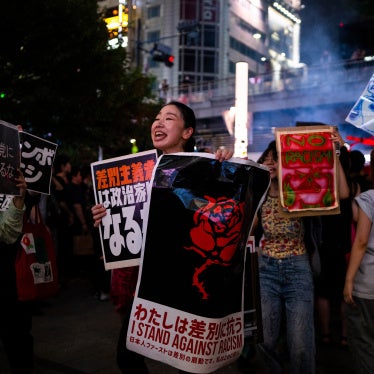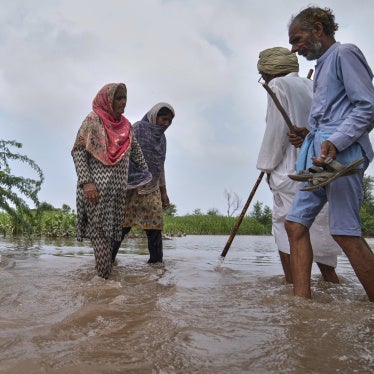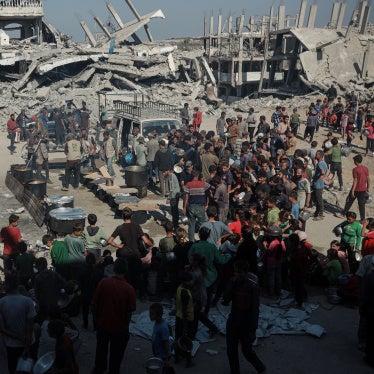(New York) - Draft articles on citizenship in Nepal's proposed new constitution risk making many Nepali children stateless, Human Rights Watch said today. Some of the proposed citizenship provisions are sharply at odds with Nepal's obligations under international law as well as the explicit commitment in the draft constitution itself to prevent statelessness, Human Rights Watch said.
The current draft, as modified by the High Level Task Force created to review the draft constitutional provisions in November 2010, specifies that a child would automatically be granted Nepali citizenship only if both parents prove they are Nepali citizens. Human Rights Watch urges the Constituent Assembly to amend the draft to allow a child born to either a Nepali mother or a Nepali father to be able to claim citizenship by descent.
"If these provisions on citizenship are passed into law, Nepal may have a crisis of statelessness on its hands," said Elaine Pearson, deputy Asia director at Human Rights Watch. "Instead of leveling up to ensure fair and equal access to citizenship for children born in Nepal, this proposal would level down to make acquiring citizenship difficult for many more children."
The anticipated new constitution is expected to provide greater protection of fundamental rights, in particular for minorities, women, and marginalized and vulnerable groups. Human Rights Watch expressed concern, however, that the 28 political parties endorsed the draft citizenship provisions of the High Level Task Force on January 3, 2011, in spite of the problems inherent in the provisions.
The current draft attempts to rectify existing discriminatory legislation that guarantees citizenship by descent only to children born to Nepali fathers. But it means that children with one Nepali and one foreign parent would be ineligible for citizenship if the foreign parent cannot or does not wish to take on Nepali citizenship.
In addition, provisions in the proposal would only allow a child of a Nepali parent married to a foreign spouse to apply for citizenship by naturalization after the parents have lived in Nepal as a married couple for 15 years, assuming that the parent is approved for naturalization, which is a matter of state discretion.
The requirement for both parents to prove citizenship for a child to be granted citizenship by descent is a source of concern, Human Rights Watch said, especially with regard to women. Human Rights Watch research suggests that for Nepali women in particular, the securing legal proof of citizenship can be very difficult, especially when male family members refuse to assist them or are unavailable to do so. Denying women proof of citizenship is an expedient way of ensuring that they cannot assert their rights to marital property, inheritance, or land.
"The government should take extra care to protect the vulnerable, in this case children, regardless of the whims of a parent or the discretion of local authorities," Pearson said. "The Nepali authorities need to ensure that every child born in the country is guaranteed their right to acquire a nationality and not be left stateless."
Research commissioned by the Government of Nepal in 1995 established that approximately 3.4 million qualifying Nepalis lacked citizenship certificates. Through a major government effort to rectify this problem, 2.6 million of those people were able to get citizenship documents. But at least 800,000 Nepalis currently do not have citizenship certificates.
In light of population growth, the actual number of persons lacking citizenship certificates is likely to be considerably higher, with estimates ranging from between two million to five million people out of a population of about 29 million who might be entitled to citizenship but lack documents, according to independent groups studying the issue. Children of these parents could be excluded from effective access to citizenship rights under the proposed provisions.
"Nepal is at a critical and exciting point in its history, as it drafts a new constitution designed to protect all its people equally," Pearson said. "No one should fall through the gaps in this process, least of all vulnerable groups such as children."








